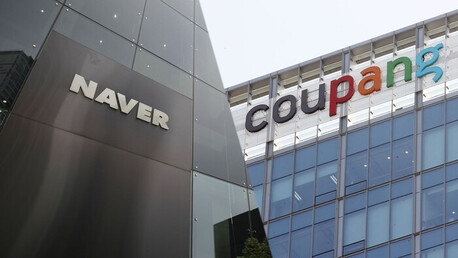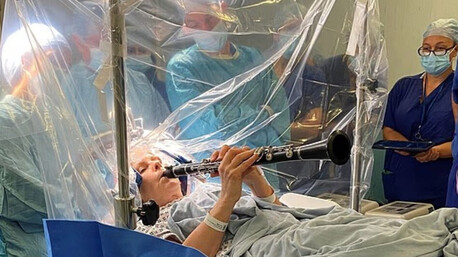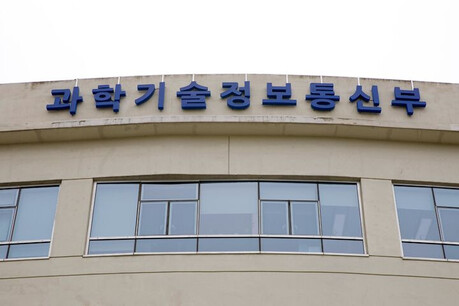
SEOUL, South Korea – South Korea has achieved a significant economic milestone, with its per capita Gross National Income (GNI) exceeding ₩50 million (approximately $36,745 USD) for the first time in history. This notable increase reflects a robust economic performance, despite the lingering impact of a stronger US dollar against the Korean Won.
According to preliminary data released by the Bank of Korea (BOK) on June 5, the nation's per capita GNI for 2023 was finalized at ₩50.12 million, marking a substantial 6.1% increase from the previous year. This figure slightly improved from the earlier provisional estimate of ₩49.955 million announced in March. The upward revision was primarily driven by an improved nominal Gross Domestic Product (GDP) confirmed for 2023, which reached ₩2,408.7 trillion, an increase of approximately ₩7 trillion from the preliminary estimate of ₩2,401.2 trillion.
When converted to US dollars, the per capita GNI stands at $36,745, representing a 1.5% rise from the $36,195 recorded in 2022. This also marks a $121 increase from the $36,624 figure released in March. However, due to the depreciation of the Won against the dollar, influenced by a higher average exchange rate of ₩1,364.38 in 2024 compared to ₩1,144.61 in 2021, the dollar-denominated per capita GNI remains the second-highest on record, falling short of the $37,898 achieved in 2021.
Overtaking Japan and Global Standing
The per capita GNI is a crucial indicator of a nation's average living standards. In a significant development, South Korea's per capita GNI is estimated to have surpassed that of Japan for the second consecutive year. Japan's per capita GNI for 2023 was estimated at $34,533, lower than South Korea's. This follows a trend observed in 2023 when South Korea's per capita GNI ($32,859) first exceeded Japan's, largely attributed to the persistent depreciation of the Japanese Yen.
Globally, among major countries with populations exceeding 50 million, South Korea is estimated to rank sixth in per capita GNI. The nations preceding South Korea in this ranking include the United States, Germany, the United Kingdom, France, and Italy. This positions South Korea as a significant economic player on the global stage.
Kang Chang-gu, head of the National Income Division at the Bank of Korea's Economic Statistics Department 2, commented on the recent figures. "The overall amount increased as the finalized nominal GDP for 2023 was reflected in the 2024 estimates," he stated, emphasizing that "this is the first time per capita GNI has exceeded ₩50 million." He further explained the discrepancy between the Won and dollar-denominated growth rates: "While per capita GNI increased by 6.1% in Won terms, it only saw a 1.5% increase in dollar terms due to the rise in the exchange rate."
Household Disposable Income and Economic Indicators
The report also highlighted other key economic indicators. Per capita Gross Disposable Income (GDI), which represents the income households have available for consumption or saving, rose by 5.4% year-on-year to ₩27.742 million. In dollar terms, this amounted to $20,339, a 0.9% increase.
The GDP deflator, a measure of the overall level of prices of all new, domestically produced goods and services in an economy, increased by 4.1% year-on-year. The gross saving rate saw a rise of 1.7 percentage points to 34.8%, while the gross domestic investment rate declined by 1.9 percentage points to 29.6%. The household net saving rate improved by 1.8 percentage points to 8.0%.
Kang attributed the economic performance of the past year to exports. "Last year, exports drove the economy more than domestic demand," he explained. "Domestic demand was sluggish due to weak construction investment and subdued private consumption, while net exports expanded due to strong exports."
First Quarter 2025 GDP Sees Slight Contraction
However, the BOK also reported a slight contraction in the first quarter of 2025. South Korea's economy saw a 0.2% quarter-on-quarter contraction in Q1 2025, consistent with the preliminary estimate released in April. The precise figure was -0.219%. The year-on-year growth rate for the same period was 0.0%.
Revisions were made to the initial estimates based on additional March data not fully incorporated in the preliminary assessment. Facility investment was revised upward by 1.7 percentage points, and exports by 0.5 percentage points. Imports, a subtraction item, were also revised upward by 0.9 percentage points.
Following a -0.5% contraction in Q4 2022, the economy had seen positive growth until Q1 2023 (+1.3%). It then contracted by -0.228% in Q2 2023 before registering 0.1% growth in both Q3 and Q4.
Consequently, the contribution of the private sector to Q1 2025 GDP growth decreased to -0.3 percentage points from +0.1 percentage points in Q4 2024, while the government's contribution increased from -0.1 percentage points to 0.1 percentage points.
Breaking down the components, the contribution of net exports (exports minus imports) increased from 0.1 percentage points to 0.2 percentage points. Private consumption's contribution fell from 0.1 percentage points to -0.1 percentage points, and government consumption from 0.1 percentage points to 0.0 percentage points. Construction investment improved from -0.6 percentage points to -0.4 percentage points, while facility investment decreased from 0.1 percentage points to 0.0 percentage points. Intellectual property product investment remained consistent at 0.1 percentage points.
Real GNI, which measures the real purchasing power of the income earned by a nation's residents, increased by 0.1% quarter-on-quarter and 0.7% year-on-year. Nominal GNI rose by 0.1% quarter-on-quarter and 3.2% year-on-year.
Looking ahead, Kang offered a cautious outlook. "In the second quarter, the construction and accommodation sectors are still not performing well," he noted. "Credit card usage in early May was lower than expected but showed improvement towards late May." He also cautioned about potential external factors: "While customs data for April showed a positive trend, the full impact of US tariff policies is set to materialize, and we must consider the negative aspects of tariffs."
[Copyright (c) Global Economic Times. All Rights Reserved.]






























